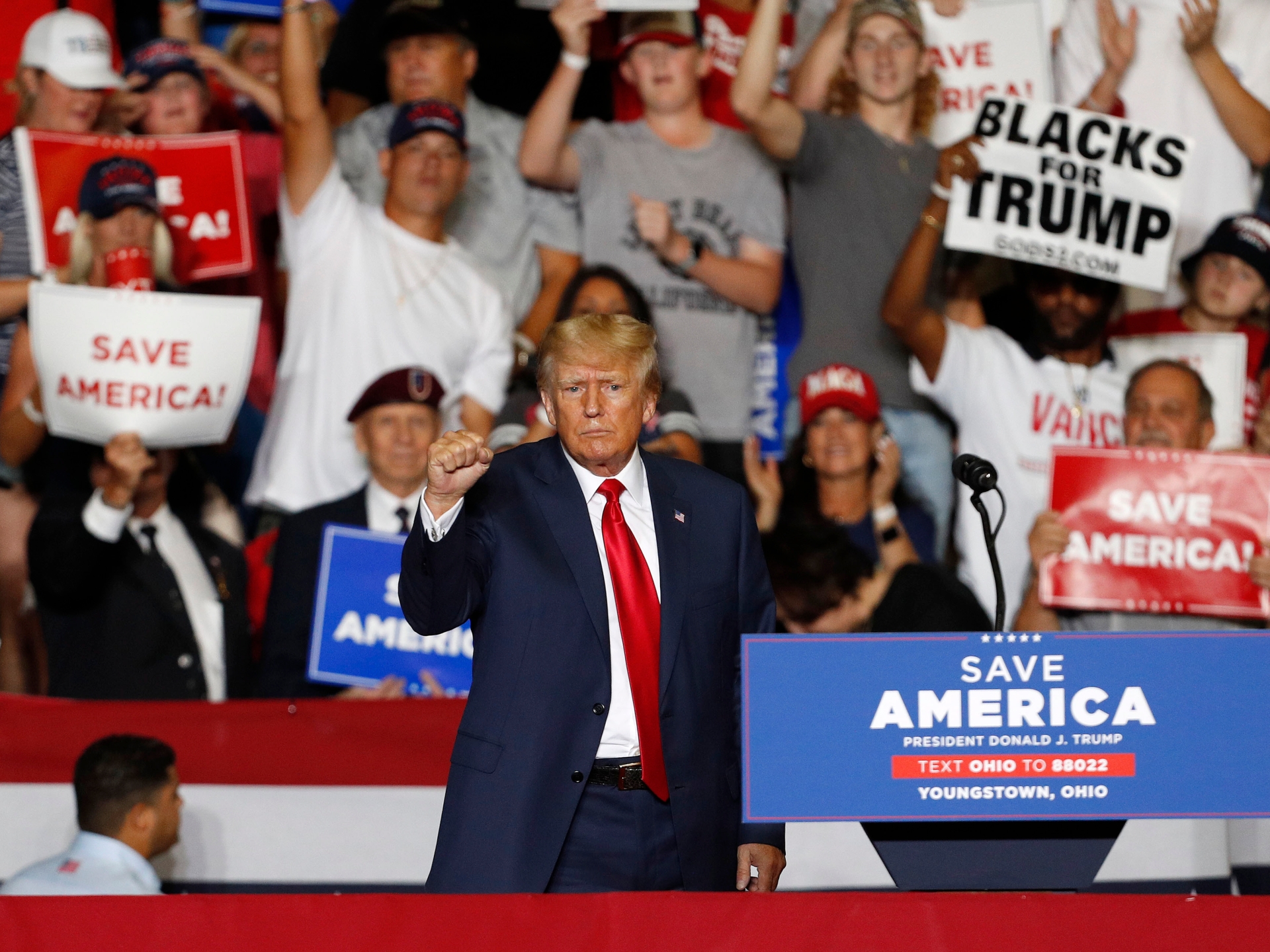Last week, American talk show hosts had a field day with Donald Trump, ridiculing his claim to FOX News that he had the right to keep classified government records found in his Florida residence — because as president at the time, he could declassify documents by merely thinking it.
Truly hilarious. However, while liberal mainstream media outlets are so focused on Trump’s comical wonders, his influence at home and abroad is no laughing matter.
Despite the former US president’s personal failings and the ongoing legal investigations against him, Trump’s populist brand is making headway, both nationally and internationally. From Europe to Latin America and from North Africa to southeast Asia, more and more leaders are following in Trump’s footsteps.
Some are winning elections, as Giorgia Meloni did in Italy last Sunday. Some are threatening hell on earth if they lose elections, as Brazil’s Jair Bolsonaro has warned. And others are waging successful political campaigns and gaining ground fast, as Marine Le Pen has done in France. Even Tunisia’s populist president, Kais Saied, has taken a few pages from Trump’s playbook, attacking the system that propelled him to power, dissolving parliament, and demonising and repressing the opposition, all in the name of “the people”.
America, of course, is the big jackpot. And thus far, Trump has defied the odds and all the political obituaries by maintaining his control over the Republican Party. Last spring, the United States editor of the Financial Times claimed that Trump was “losing his stranglehold on Republicans”. Yet by the end of the summer, the usually sober newspaper’s editorial warned that “Donald Trump now owns the Republicans” — only weeks ahead of the midterm elections.
Indeed, according to recent polls, almost three-quarters of US Republican voters deny that Joe Biden is the country’s legitimately elected president. Many of the party’s candidates believe — or at least claim — that the 2020 presidential elections were stolen. If as predicted, they win either or both the Senate and House of Representatives come November, the Republicans are sure to derail or defund Biden’s ambitious social, economic and environmental programmes, and help pave the way for a potential Trump comeback in 2024.
Despite his impeachment, not once but twice, and despite him losing the 2020 incumbency, Trump’s brand has remained strong around the world. Many have proudly followed in his footsteps, earning the titles of “Brazil’s Trump” (Bolsonaro), “Britain’s Trump” (Boris Johnson), the “Philippine Trump” (Rodrigo Duterte), “Israel’s Trump” (Benjamin Netanyahu) and so on.
Yet unlike, say, Barack Obama, who inspired young leaders around the world, Trump has influence that stems mainly from the power of his office, as the former and potentially future leader of the world’s sole superpower.
This is important, because what we call Trumpism today has long preceded Trump and will long outlast him. Europe’s nationalist right-wing groups had jeered the liberal establishment, immigration and globalisation and cheered traditional Christian family and social values decades before populist Trump entered the political scene with bluster and bravado.
In fact, Russian President Vladimir Putin championed these causes and supported far-right parties across Europe well before Trump entered politics – lest we forget that it was Putin who supported Trump’s candidacy in the 2016 elections, leading to his first impeachment.
At the time, Trump’s ideologue, Steve Bannon, was influenced by “Putin’s Rasputin”, Alexander Dugin, whose ideas on nationalism and traditionalism he admired and embraced. Ideas that are rooted in the thinking of the likes of the 20th-century Italian philosopher Julius Evola. Ideas that metastasised into Italian fascism and into today’s European far-right ideologies, including that of the Brothers of Italy, the party that won Sunday’s parliamentary elections.
Of course, if you believe that Trump read Evola or any thinker of the 20th — or any other — century, I have a bridge in Washington to sell you. Obviously, Bannon did the reading and Trump did the leading. But does Trump believe what he preaches?
In a tell-all conversation with Bob Woodward for the book, Fear, Bannon portrays Trump as a lying cynic, who is more concerned with power than principle, preoccupied with victory not values, ready to change positions to suit his interests. Bannon, who thinks of himself as a true believer, is also a charlatan.
And make no mistake, it was his killer instinct and his unabashed unapologetic demeanour that has earned Trump the support of the Christian right and other conservatives like Bannon. He may not be a “stable genius”, but he continues to provide momentum, drive and prestige to conservative and far-right movements in America, Europe and beyond.
Today, the US — indeed the world — “stands at an inflection point”, to use Biden’s overused term. It could swing towards harsher conservative authoritarianism or towards gentler liberal social democracy. That’s a cause for hope but also for alarm.
A Republican victory in 2022 followed by a Trump victory in 2024 would be no less than cataclysmic for the liberal order. A triumphant and vengeful Trump would consider such a victory as vindication to do what he pleases, turning ever more reckless at home and ever more influential abroad. And even if he does not run, a younger, smarter and possibly more capable heir like Florida Governor Ron DeSantis is impatiently waiting in the wings.
Smug American liberals busy ridiculing Trump must remember: They who laugh last laugh loudest.
